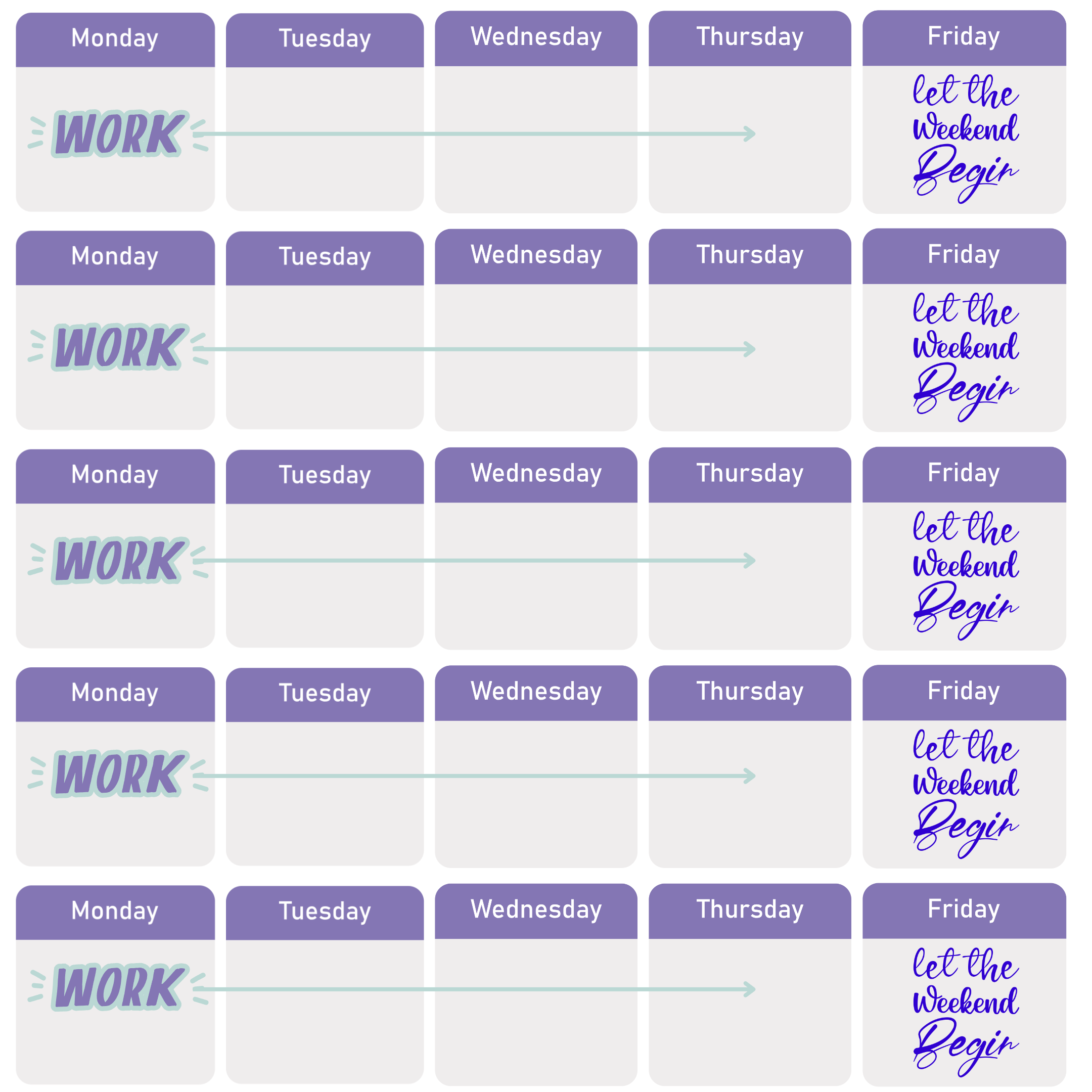
Is A 32 Hour Work Week Best For You?
August 20, 20214 Troubling Workplace Trends – And Brain-Based Tools To Navigate Them [Infographics]
February 12, 2022How Stress Changes Your Brain: And What To Do About It [Infographics]
How’s your stress level?
Manageable – you get stressed, but it passes pretty quickly, and you sleep well at night.
Challenging – you hang on to some stress, and it affects your personal life and/or sleep.
Danger Zone – you’re in high gear most of the day, have a hard time relaxing, slowing down, and making time to re-connect to what really matters in life.
As an executive coach, I consistently work on navigating the stress level of my clients to support peak performance, so this is a topic at the top of my radar!
Heck, life can be stressful. And there are many types of stressors: mental stress (deadlines at work, problems that need solving), relationship stress (tension in a close/important relationship that isn’t resolved), physical stress (illness, or intense exercise), spiritual stress (if you’re struggling to find meaning or purpose), financial stress (worrying about your financial future or a hefty commitment), and more.
Which stressors are you currently dealing with?
Your Stress Control Center
When you’re under stress three key parts of your brain are activated most potently: the hypothalamus, the pituitary gland, and the adrenal cortex.
Hypothalamus: Its main function is to keep the body in homeostasis, or healthy balance. When you’re thirsty, your hypothalamus signals you that fluids are needed to achieve homeostasis. The hypothalamus controls or creates numerous hormones in your body.
Pituitary Gland : This gland collaborates with the hypothalamus to make and route additional hormones around the body, collectively known as the endocrine system. Here you’ll find the adrenal cortex (yep, adrenaline), gonads, thyroid.
Adrenal Cortex: This is one of two glands that sit on top of your kidneys (we’ll skip the adrenal medulla for now—the maker of adrenaline—as we have enough to talk about!). The adrenal cortex produces hormones vital to life, like cortisol which helps you respond to stress, control your blood pressure, and regulate your metabolism. The stress hormone I want to talk about today is the cortisone-like compounds called glucocorticoids, including cortisol. Oh—by the way: the neural system that operates our emotions (the limbic system) also regulates the glucocorticoid control system.
Here’s the tricky part: because some stress is manageable, we can creep into the challenging or danger zone levels super-fast.
The Damage Stress Does to Your Body and Brain
Cortisol is not a bad thing—it mobilizes blood glucose when you wake up in the morning, which provides essential food for your brain. Too much cortisol is a problem, though, as it impairs your body’s ability to maintain homeostasis. When stress is chronic, your body will break down proteins to generate energy, so muscle mass decreases, inflammation occurs, the immune system is compromised, it’s a mess.
Consistently high levels of cortisol impair memory, accelerate cognitive decline, and most importantly they change the neural circuitry that actually regulates the release of glucocorticoid. Whoa. Wait a sec. Now your brain adapts to the chronic stress and starts working differently. Yikes.
Let’s dive into this. Think about a repeated stress you’ve experienced. Maybe you went through a challenging relationship struggle or divorce, supported a loved one through a chronic illness preceding death, had several job changes or home moves over an extended period of time.
How Excessive Stress Becomes “Normal”
What happens is that your brain learns to “get used to it”, and habituation occurs. Repeated stress of the same type has taught the neurons to stop responding like they used to. A new normal is established—and it’s not a healthy one.
But wait, there’s more. Now the hormone control system has become overly sensitive to the non-routine unpredictable stresses. It starts overreacting to everything other than what it has become habituated to.
Now, whether the brain learns these stress-coping strategies depends on the conscious override of hyperactive responses to stress, because the neural system that operates our emotions, the limbic system, also regulates the glucocorticoid control system. We can not only reduce excessive glucocorticoid, but also teach our brain better ways to deal with stress by doing the following:
- Single task (multi-tasking, which is really task switching, is very stressful to the brain—don’t do it!)
- Look for things that bring joy and notice the beauty in the world
- Use reframing to make more positive meaning from situations
- Look for the humor in life, and celebrate often (even the little things)
- Reduce mental, physical, emotional clutter
- Meditate to slow down your thoughts and gain perspective
- Develop meaningful relationships
- Limit your exposure to abrasive music, movies, environments, and to people who thrive on drama
The Net-Net
· Stress causes tremendous amounts of disruption in your brain
· Your brain will “normalize” excessive stress if it continues for an extended period of time
· You can intentionally shift your focus to navigate stress more easily
How’s your stress level? Which of the above tools will you use to move it to manageable?
Want to boost your leadership skills and skyrocket sales? Take our Leadership Experience Assessment here.




